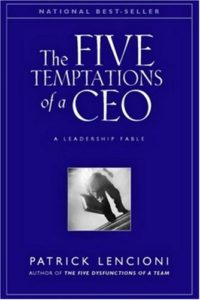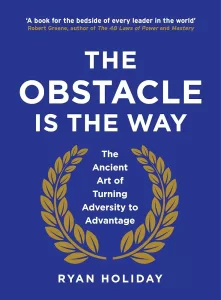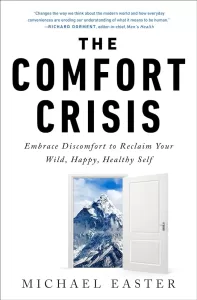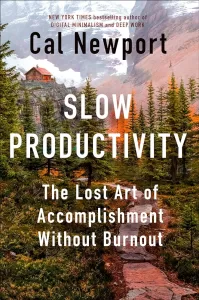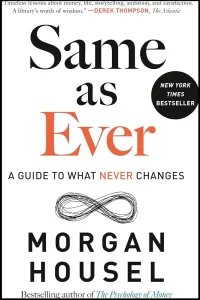Book Review: “The Five Temptations of a CEO”
Book: The Five Temptations of a CEO by Patrick Lencioni
Reviewer: Bobby Powers
My Thoughts: 7 of 10
I'm not a CEO. Odds are, neither are you. But don't let this book's title deceive you into thinking that its contents can't reach you in your current position. The Five Temptations of a CEO is a simple, yet powerful depiction of the common traps leaders must avoid in order to be successful. Lencioni asks the tough questions, yet presents them in his patented "leadership fable" format that even a five-year old could understand.
Takeaways from the Book
The Five Temptations:
1) Choosing Status over Results
- What has been the best day of your career? Think about it. If the answer is a personal achievement (i.e. getting a promotion or a raise), then “you may be more interested in protecting your career status than you are in making sure your company achieves results.”
- To put this in perspective, “imagine the president of the United States saying that the greatest day of his career was election day, or inauguration day…or imagine the basketball coach saying his greatest day was signing a big contract with a team.”
- “Make results the most important measure of personal success.”
- “The future of the company you lead is too important for customers, employees, and stockholders to hold it hostage to your ego.”
- Ask yourself: “Do you personally consider it a professional failure when your organization fails to meet its objectives? Would it bother you greatly if your company exceeded its objectives but you remained somewhat anonymous relative to your peers in the industry?”
2) Choosing Popularity over Accountability
- “Work for the long-term respect of your direct reports, not for their affection.”
- “CEOs conduct performance reviews for their direct reports far less diligently than do managers at other levels. Why? It isn’t because they are too busy or lazy, but because they don’t want to deal with the prospect of upsetting one of their peers. Ironically, those same CEOs will not hesitate to ultimately fire a direct report when his or her performance problem becomes too costly…but they often fail to provide constructive or negative feedback along the way.”
- Ask yourself: “Do you often find yourself reluctant to give negative feedback to your direct reports? Do you water down negative feedback to make it more palatable?”
3) Choosing Certainty over Clarity
- “Any decision is better than no decision.”
- "You can’t move forward in the face of uncertainty if you aren’t willing to make mistakes.”
- Sometimes you will need to boldly admit, “I was wrong.” When you do, say those words with pride. These words are a sign that you can make tough decisions with limited information rather than wavering in a sea of uncertainty.
- “If the decisions you make in the spirit of creating clarity turn out to be wrong when more information becomes available, change plans and explain why. It is your job to risk being wrong. The only real cost to you of being wrong is loss of pride. The cost to your company of not taking the risk of being wrong is paralysis.”
- Ask yourself: “Do you prefer to wait for more information rather than make a decision without all of the facts?”
4) Choosing Harmony over Productive Conflict
- “It’s natural for human beings to want harmony…But harmony is like cancer to good decision making.”
- “Most people, including CEOs, believe that it is better for people to agree and get along than disagree and conflict with each other. That is how they are raised. However, harmony sometimes restricts ‘productive ideological conflict,’ the passionate interchange of opinions around an issue.”
- “Tumultuous meetings are often signs of progress. Tame ones are often signs of leaving important issues off the table. Guard against personal attacks, but not to the point of stifling important interchanges of ideas.”
- “Productive executive staff meetings should be exhausting inasmuch as they are passionate, critical discussions. Pleasant meetings—or even worse, boring ones—are indications that there is not a proper level of overt, constructive, ideological conflict taking place.”
- Ask yourself: “Do you prefer your meetings to be pleasant and enjoyable? Are your meetings often boring? Do you get uncomfortable at meetings if your direct reports argue?”

5) Choosing Invulnerability over Trust
- "Actively encourage your people to challenge your ideas. Trust them with your reputation and ego.”
- “Great CEOs don’t lose face in the slightest when they are wrong, because they know who they are, they know why they are the CEO, and they realize that the organization’s results, not the appearance of being smart, are their ultimate measure of success. They know that the best way to get results is to put their weaknesses on the table and invite people to help them minimize those weaknesses.”
- Ask yourself: “Do you have a hard time admitting when you’re wrong? Do you try to keep your greatest weaknesses secret from your direct reports?”
Additional Insights
- “These behaviors are difficult to master not because they are complicated but because each presents us with a corresponding temptation, a natural tendency toward human frailty.”
- “The greatest challenge of being a CEO, or any leader for that matter, is to avoid getting trapped by the daily complexities and details of our ‘business.’”
Think you’d like this book?
Other books you may enjoy:
The Four Obsessions of an Extraordinary Executive by Patrick Lencioni
The 17 Indisputable Laws of Teamwork by John C. Maxwell
Other notable books by the author:
The Five Dysfunctions of a Team
Death by Meeting
The Advantage
